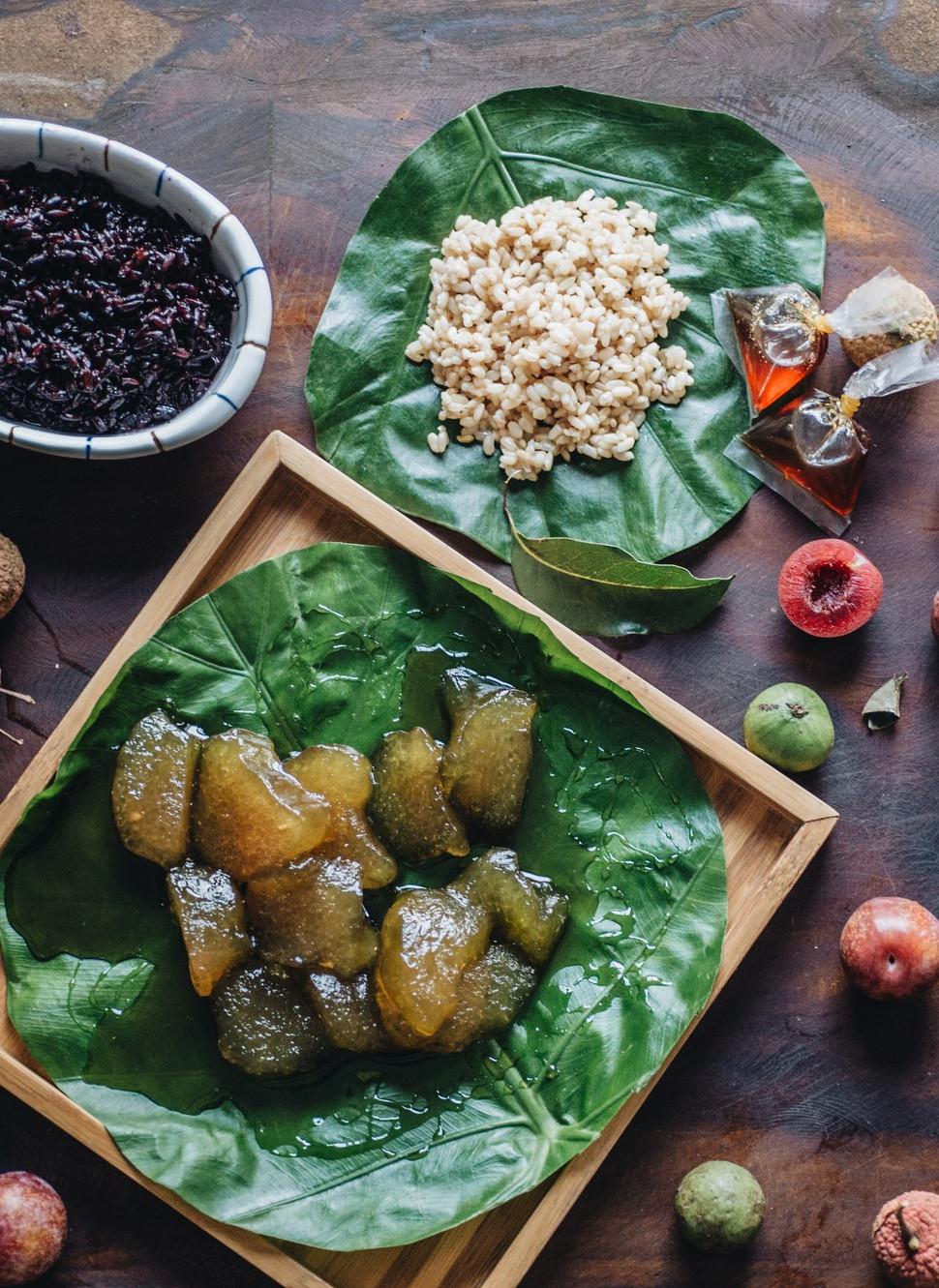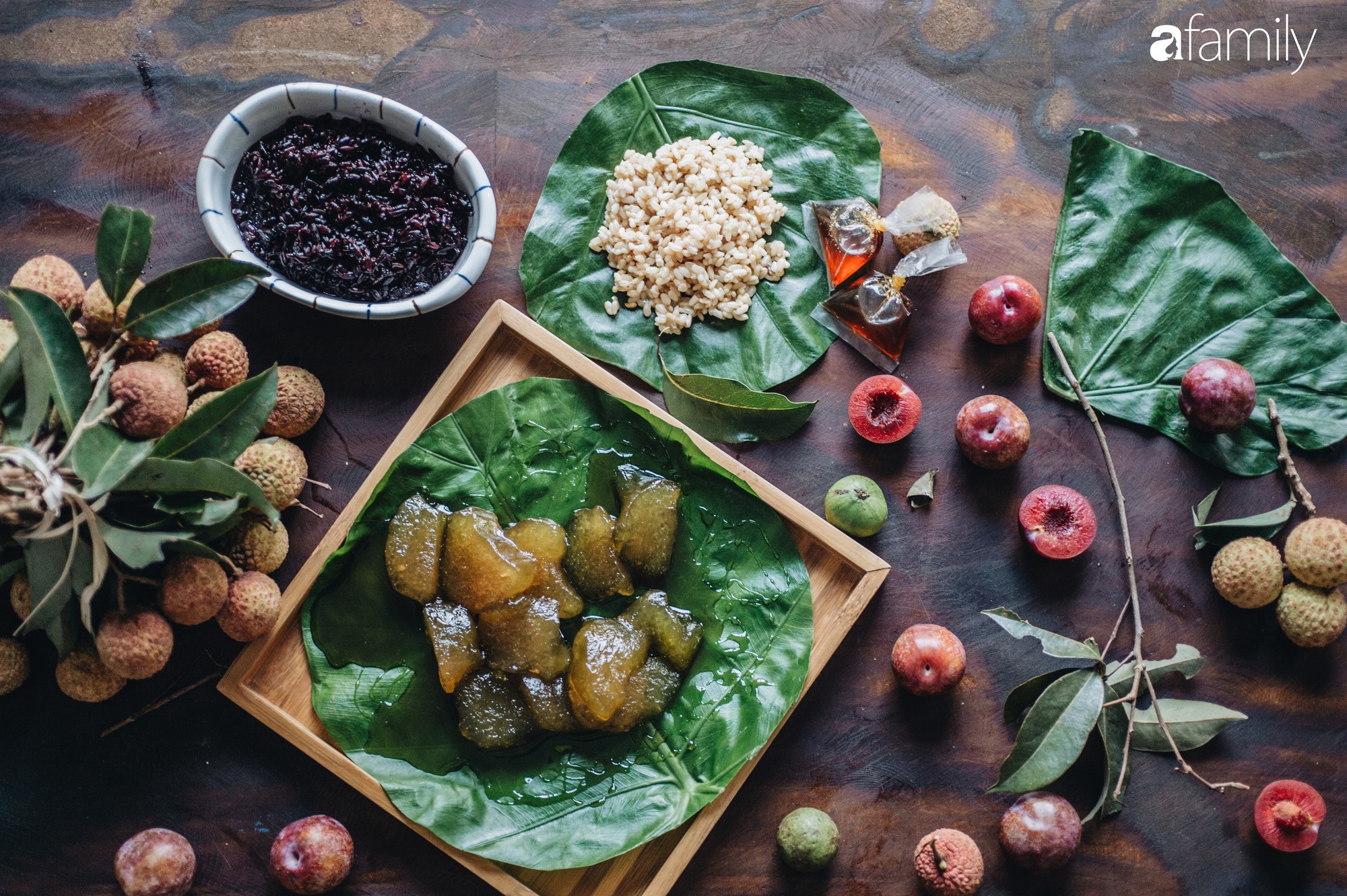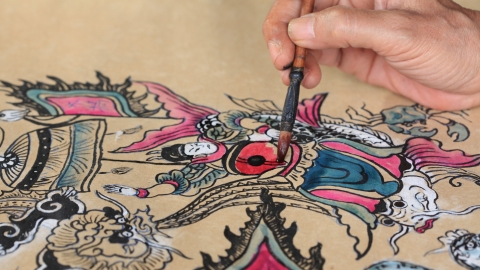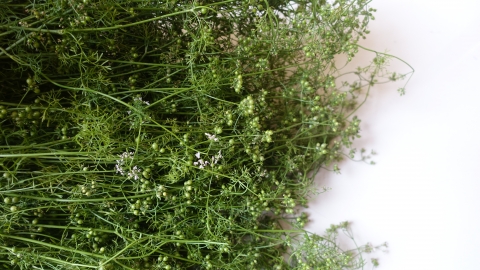The Dragon Boat Festival (Tết Đoan Ngọ) is a special holiday in Vietnamese tradition, celebrated on the 5th day of the 5th lunar month. It's a shared festival in several Asian countries with similar cultural ties, including China, Japan, Korea, and Vietnam. Despite many similarities, the Dragon Boat Festival in each country has its own customs and significance. Let's explore some interesting stories surrounding the traditional Dragon Boat Festival.
The Legend of Qu Yuan and the Dragon Boat Festival in China
Towards the end of the Warring States period, there was a high-ranking official of the State of Chu named Qu Yuan. He was a loyal minister of Chu and also a renowned cultural figure. Legend says he authored the famous poem "Li Sao" in ancient Chinese culture, expressing his sorrow over the decline of his country and the impending loss of his kingdom.
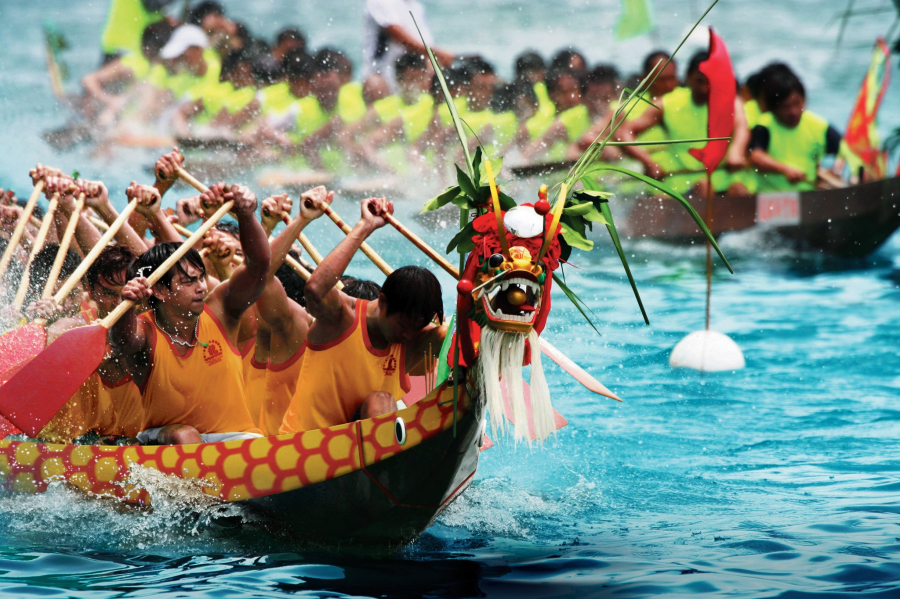
The Dragon Boat Festival is celebrated during the Dragon Boat Festival in China today.
Unable to advise King Huai on matters of state and further persecuted by treacherous officials, Qu Yuan, overwhelmed with grief, threw himself into the Miluo River on the 5th day of the 5th lunar month. Out of sorrow for this loyal and righteous man, every year on this day, people in ancient China would make cakes, wrap them in five-colored threads, and sail boats to the middle of the river. They would then put rice into bamboo tubes and release them into the river along with the cakes as offerings to Qu Yuan.
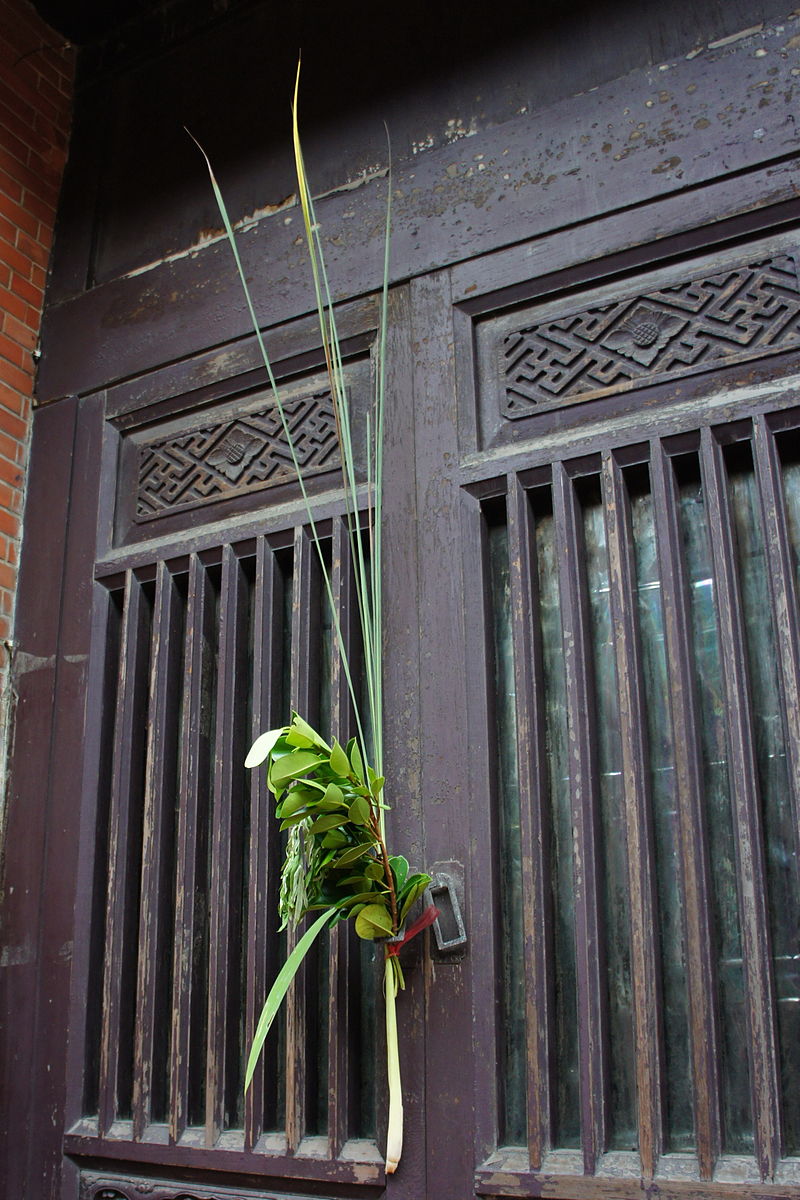
Acorus calamus is an herb used during festivals, or hung in front of houses, wrapped in banyan leaves, to ward off evil spirits.
To this day, the Chinese still maintain the custom of boat racing on the Dragon Boat Festival every year to commemorate Qu Yuan. In addition, they wear fragrant pouches. These pouches are made of cloth and five-colored threads, sewn into various shapes such as spheres and tigers, and contain various aromatic herbs such as coriander seeds, realgar, basil, and other spices used to ward off snakes, insects, and other pests that harm children. The Chinese believe that wearing fragrant pouches on the Dragon Boat Festival can ward off illness and evil spirits.
Vietnamese New Year for Exterminating Pests
Vietnamese people also call the Dragon Boat Festival the festival for exterminating insects. This is one of the traditional rituals with rich cultural content, closely linked to the experience of working people regarding the cyclical nature of natural laws, weather, etc., which affect human health, daily life, and agricultural production throughout the year.
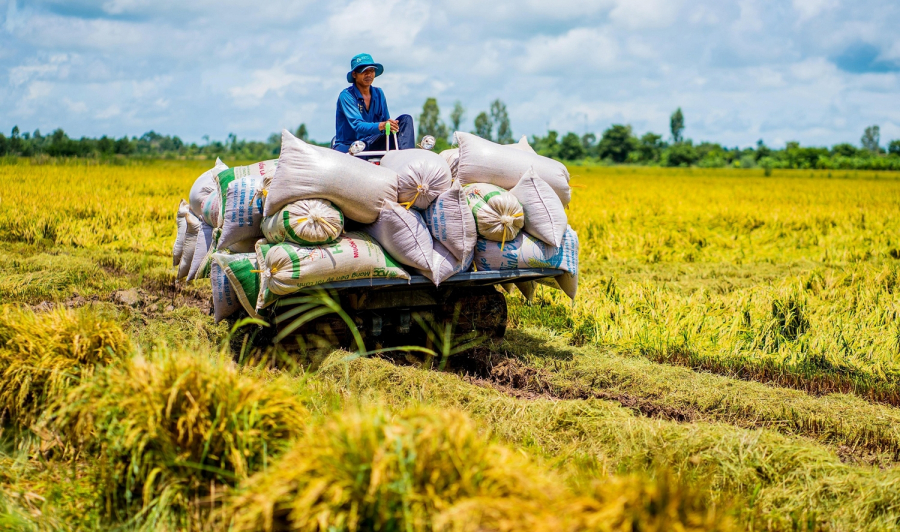
The Vietnamese Dragon Boat Festival (Tết Đoan Ngọ) originates from a folk legend. One day after the harvest, farmers celebrated a bountiful crop, but that year, swarms of insects devoured all the harvested fruits and food. Worried and unsure how to solve the insect plague, an old man appeared from afar, introducing himself as Doi Truan. He instructed each household to set up a simple altar with rice cakes and fruit, and then to exercise in front of their houses. The people followed his instructions, and after a short while, the insects fell to the ground. The old man added, "Every year on this day, the insects are very aggressive. If you follow my instructions every year on this day, you will be able to control them."
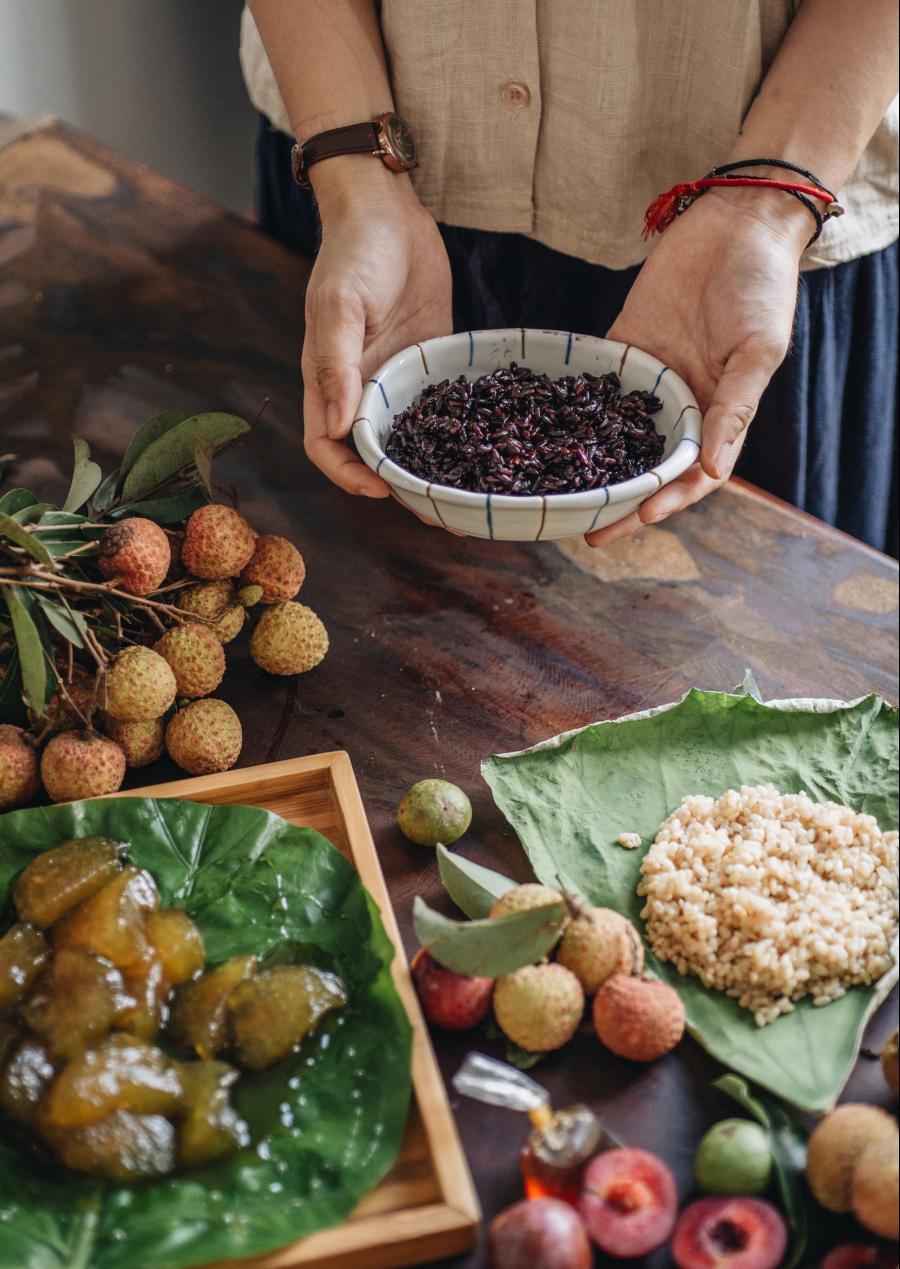
The people were grateful and wanted to express their thanks, but the old man had disappeared. To commemorate this event, the people named this day "Insect Extermination Festival," and some called it "Dragon Boat Festival" because the offering ceremony usually took place at noon.
Therefore, in Vietnam, the Dragon Boat Festival is a day for exterminating insects, launching campaigns to catch and eliminate all kinds of pests that harm crops and plants, including many types of insects that are edible.
Customs related to the Dragon Boat Festival in different regions of Vietnam.
In some rural villages in Vietnam, the old customs are still preserved, and this festival is highly valued. After the Lunar New Year, perhaps the "Insect Extermination Festival" is the most heartwarming and convivial family reunion festival, with many customs closely linked to the lives of the people...
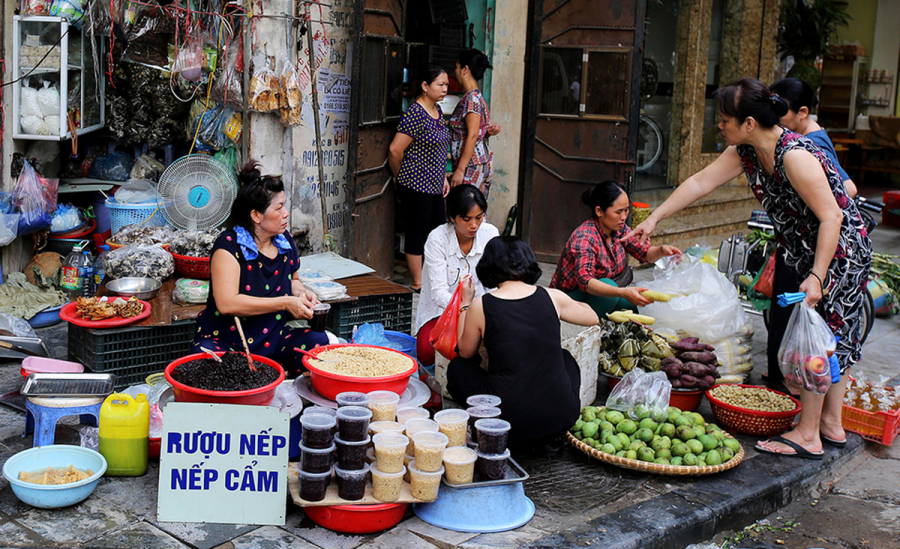
According to regional traditions, the offering tray for the Dragon Boat Festival includes fruits and various other dishes. In Hanoi and some areas of Northern Vietnam, glutinous rice wine, especially purple glutinous rice wine, is an indispensable item on this day. The fruits chosen by families for offerings are fresh, delicious, and slightly sour summer fruits such as plums, peaches, lychees, rambutan, mangoes, and watermelons.
According to folk beliefs, the human digestive system often harbors harmful parasites that reside deep within the stomach and cannot always be eradicated. However, on the 5th day of the 5th lunar month, these parasites are said to be more active, and people can eat sour and astringent foods and fruits, especially glutinous rice wine, to eliminate them.
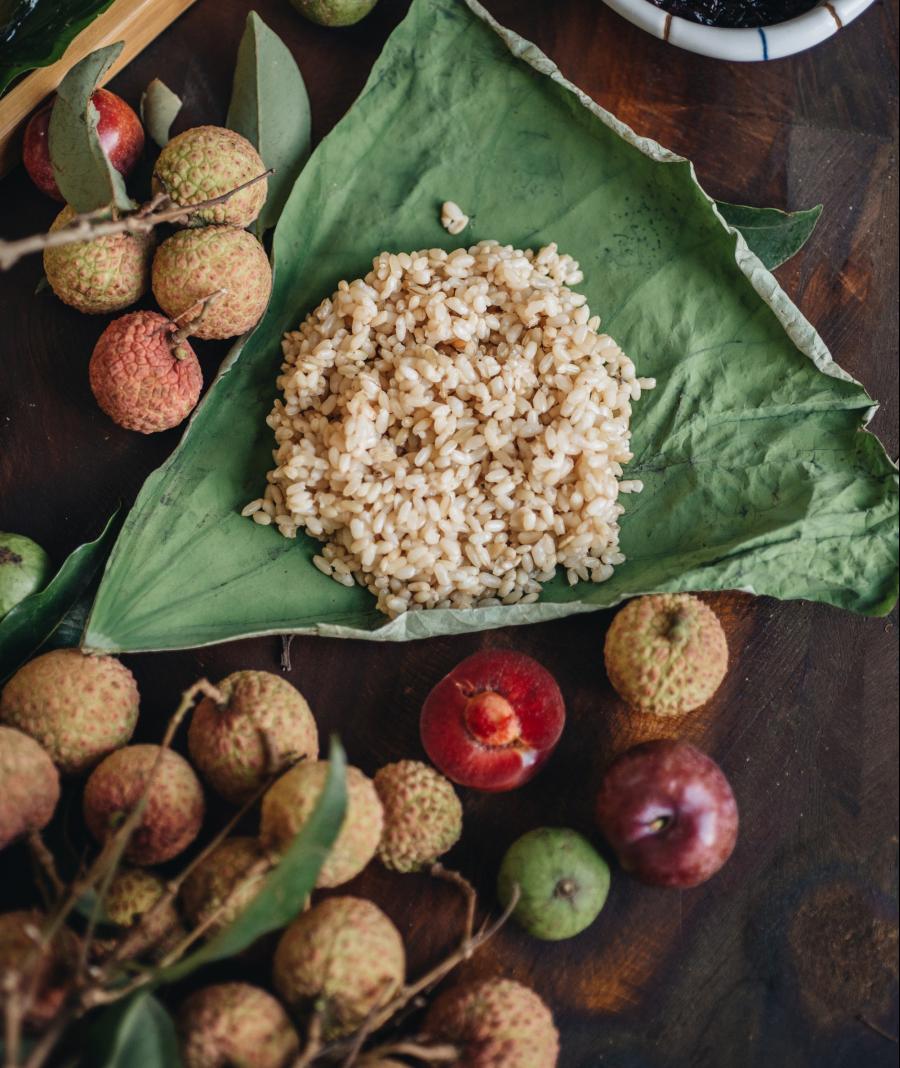
In the offerings of people in Central Vietnam, from Thanh Hoa to Thua Thien Hue, duck meat is indispensable. The reason people choose duck meat instead of pork, beef, or chicken is because ancient Vietnamese people believed that duck meat is cooling, and eating it would relieve heat and keep the body cool all year round. In Thua Thien Hue, millet porridge is a popular dish during the Dragon Boat Festival. The plump, round millet grains, after being milled to remove the husks, are soaked and boiled until soft and thick, then sugar and ginger water are added to create a fragrant porridge with an attractive golden color. From Da Nang to Quang Ngai, some families cook sticky rice porridge for offerings, and those who grow trees let their children go into the garden to pick and eat the fruit.
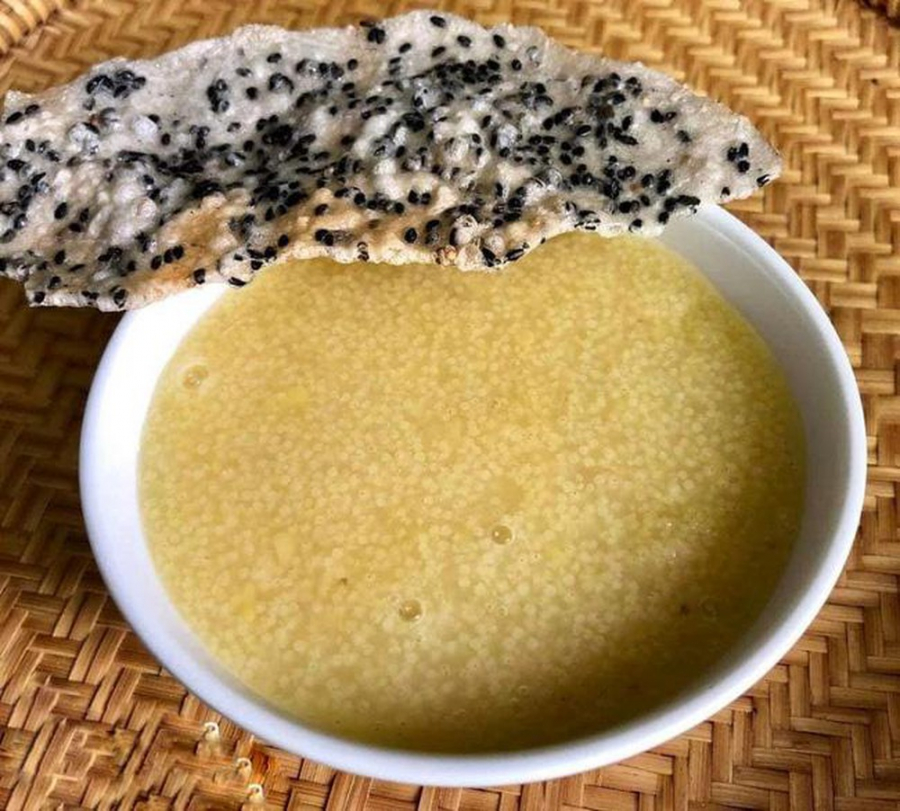
Millet tea in Hue
In Southern Vietnam, the offering tray cannot be without sweet glutinous rice balls in syrup and gac fruit sticky rice... After the offering, the whole family will gather around the table to eat these dishes. Besides fruits and glutinous rice wine, during the Dragon Boat Festival in South Central Vietnam, Southern Vietnam, and some parts of Northern Vietnam, people often eat gio cakes. Gio cakes have many different names and shapes such as: ú cake, tro cake, âm cake, and there are several variations depending on the locality.
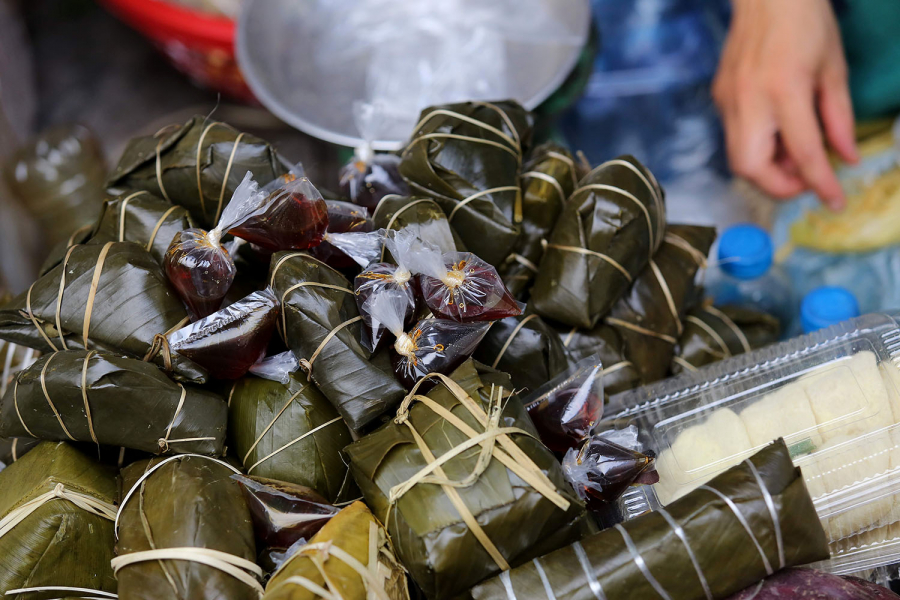
According to ancient beliefs, the fifth lunar month is a time of hot summer weather, prone to disease outbreaks. Therefore, in the past, during the Dragon Boat Festival, people in some areas of Northern Vietnam had customs such as dyeing their fingernails and toenails, examining trees for fruit, and hanging mugwort to ward off evil spirits. For babies who couldn't walk yet, a little lime was applied to their fontanelle, chest, and navel to prevent stomach aches and headaches.
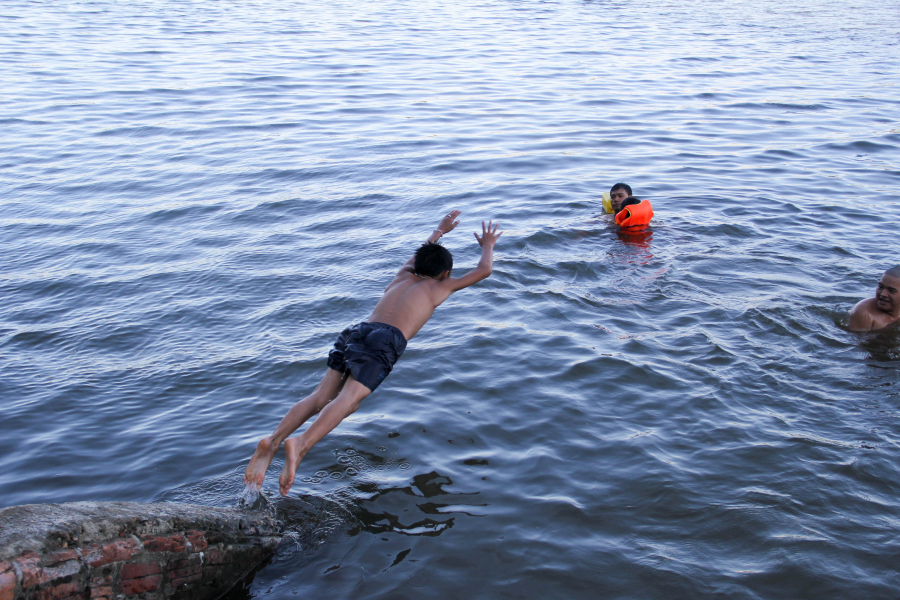
However, most of these customs have now been abandoned, with only the tradition of bathing in herbal water and gathering medicinal leaves remaining. According to cultural experts, in areas along rivers and the sea, the custom of bathing during the Dragon Boat Festival is still maintained. On this day, people will wait until noon to bathe in the river or sea because they believe it helps to cleanse themselves of illnesses.
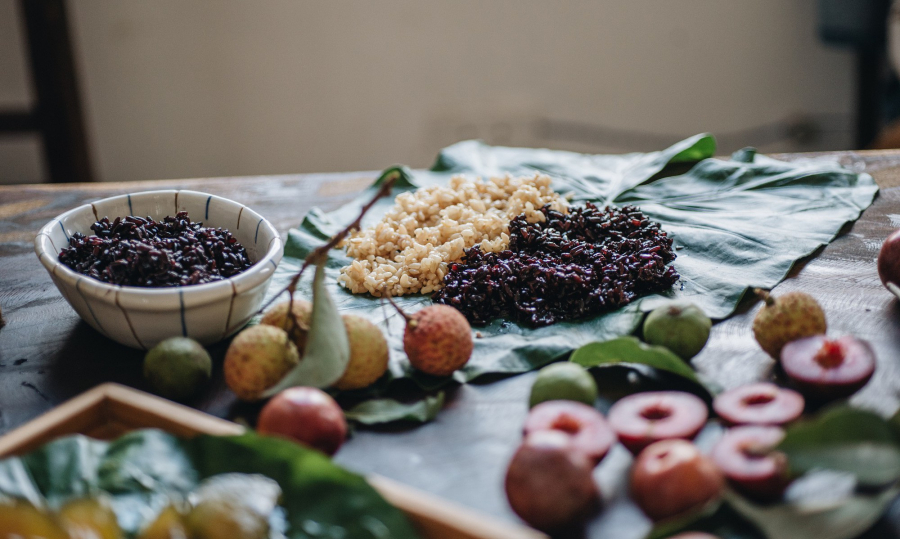

 VI
VI EN
EN



